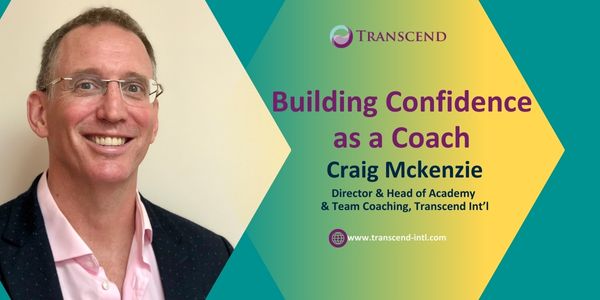Taking a slightly more personal approach to confidence, I have been reflecting on my recent 12-month experience with a long term knee injury and subsequent surgery. Three (of about 6) of the better doctors I saw over the past 12 months asked me a similar question about my growing problems with my knee: What is your main complaint?
In the earlier doctor visits, I talked more about the pain and about what I couldn’t do. And in the last few months, I realised that I had come up with a better answer. I said I felt a lack of confidence, which was what I would call an embodied sense of physical, psychological, and emotional discomfort. I had to think about every step I took. I was uncertain that it might “give way”. I hesitated. I avoided situations. I was frustrated by what used to be easy and was now challenging. I couldn’t trust that any step I took would be stable and I was increasingly worried about making a misstep.
The worst part, for me, was no matter how hard I exercised or worked I couldn’t make any lasting change. The damage was too extensive.
Post operation, in spite of the pain, swelling, and weakness, I noticed these things were absent. My joint was stable. I could trust it. And the work I am doing is making a difference which I can feel and measure on a daily basis.
The parallels to confidence in all areas of our lives are similar. When our confidence is shaken or reduced with ourselves, in our co-workers, in the company we work for, in our social structures, in our friends or loved ones, in our capacity, in our ability, in anything we experience similar symptoms as I have described.
We are afraid of making a “misstep”. We are overthinking what we used to do easily. We are not sure if the relationship, the market, or the decision will hold up should we decide to move forward.
There also comes a point when hope falters, when no matter what we do our confidence does not seem to improve. This is especially true when confidence in something outside of our circle of influence is eroding. And it is also true when we seem to be able to nothing to rebuild or reactivate our own confidence in ourselves.
There is no surgery that can repair confidence, this is where coaching can help. We can get “very serious” about exploring the existing foundation of our relationship with confidence. We can make ruthlessly kind incisions into the depths of where your confidence was formed and lost, which can help us rebuild its’ foundations. We can challenge the assumptions and existing narratives around confidence. We can help create safe embodied experiences of confidence to ground emerging confidence more powerfully. In essence, a professional and skilled coach can accompany you as you create a new relationship with confidence.
My one regret is that I ignored some of the warning signs from my deteriorating knee. It would have been much better if I would have done something sooner. If you are noticing your confidence is less strong, that you are compensating in some way, or that you are slightly more hesitant then maybe it’s worth investing in doing something before it gets worse.
Related Posts
Building Confidence as a Coach: A Self Assessment
Consciously Connecting with Confidence
MINDFULNESS WITHOUT MEDITATION
Embracing Authenticity: The Pathway to Thriving in an Ever-Changing Landscape

In the face of today’s dynamic work environment, remaining true…




